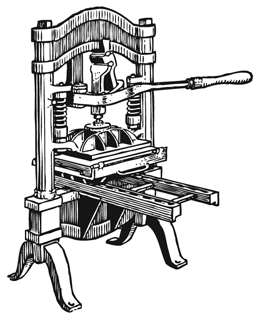Advice on self-publishing was fragmented and tentative at the past two SFWCs, in February 2010 and 2011, respectively. Some editors and agents suggested that a self-published book that sold 5000 copies might whet a publisher's appetite; others warned that less than 5000 copies sold would likely kill interest in a book; still others insisted that a book that has been self-published is a dead project as far as the New York houses are concerned ... but the track record of a self-published book might influence a decision to acquire a subsequent project -- for better or worse.
This past weekend, at the SFWC 2012 held at the Mark Hopkins Hotel on Nob Hill, the story was nearly uniform.
Michael Larson, who co-organizes the SFWC and co-leads Larson-Pomada Literary Agents with his wife Elizabeth Pomada, said in an opening address, that "self-publishing may be the best option for you, if only to test-market your book, to see if it works."
Jennifer Enderlin of St. Martin's Press was unequivocal: There's no publisher who would be turned off by a self-published book that sold well.
Agent Dan Lazar: "I look at them [self-published books] as a manuscript." In fact, when I pitched my own novel, Consequence, to Mr. Lazar on Sunday, he had beside him a self-published (print) book written by a young writer I'd met two days before.
The voices of those who have been helping authors self publish for years & years (Joel Friedlander) or run self-publishing companies (Mark Coker of Smashwords, Brian Felson of BookBaby, Jesse Potash of PubSlush) are sounding louder.
In responding to a question during a panel discussion yesterday about the "stigma" of self-publishing, Joel Friedlander responded, "Stigma? It exists primarily inside unpublished writers" ... and Friedlander went on to assert that it is diminishing even there. That assertion resonates with the tenor of conversations I had with nearly all the writers I spoke with over the weekend.
"The times have changed," Mark Coker said, agreeing with Friedlander. He credited successful independently-published authors such as Amanda Hocking and John Locke (no, not the 17th century philosopher), who have set an example of the reach successful indie-publishing can attain. The Smashwords founder went on to assert that becoming one's own publisher has moved "from the option of last resort to the option of first resort for some writers."
Informative guidance on the what and the how of self-publishing are all over the intertubes, but a place to start for interested authors might be the guides written by Coker:
- The Smashwords Style Guide is focused on formatting requirements for publishing on that platform, but also gives a writer a clear idea of the kinds of complexities in a digital manuscript that would likely stymie conversion to e-book formats on any platform or using any conversion software.
- The Smashwords Book Marketing Guide offers 30 DIY marketing suggestions that are applicable to any writer; some of them will strike writers as obvious, some are less so.
Smashwords is all about e-books; PubSlush and BookBaby bridge the print- / e-book divide. For a novelist (a subspecies of writers of some personal interest), printed books are a connundrum: it's nearly impossible for an individual to place her/his books widely in brick-and-mortar stores. PubSlush claims it has distribution into brick-and-mortar stores through Ingram, a major distributor to independent bookstores, but it's a very new venture, independent bookstores are widely perceived to be on the ropes, and there's still the matter of convincing widely distributed buyers to place orders and keep a debut title on store shelves.
Does all that imply debut novelists ought to be thinking only in terms of e-book publication, at least until a book is proven in the e-marketplace? Some think so. I'm not so sure, but I also know I don't have room for too many cases of printed books in my livingroom.
Questions about what it all means for this unpublished novelist were ricocheting around my head all weekend at SFWC 2012. I suppose time will tell ... but in a world of diminishing advances and marketing budgets, a world in which only 7% of "traditionally published" books sell more than 1000 copies, it's fair to say that writers are taking a close look at value that large New York houses offer to authors in exchange for contracts that limit both royalties for and ownership of our work.
I can still say this: I would much rather have an agent to steer me through the thicket than go it alone. So far as I can tell, it's pretty much all quicksand out there.
Related posts on One Finger Typing:
Publishing ain't dead, but it's a deer in the headlights
What's that you say about self-publishing, sonny?
Thanks to Briar Press for the image of an iron Baby Reliance hand press.














